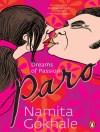Frederic Manning’s ‘Eidola’ is a richly woven tapestry of existential exploration and philosophical inquiry, set against the backdrop of early 20th-century Europe. The narrative, characterized by its stream-of-consciousness style and vivid imagery, delves into the complexities of identity and the human condition, as the characters navigate their fragmented realities. Manning’s potent symbolism and lyrical prose invite readers to reflect on the illusions that shape our perceptions, making it a profound literary piece reflective of modernist themes prevalent during the time of its publication. Frederic Manning, an Australian-born poet and novelist, drew deeply from his extensive experiences as an expatriate in Europe, where he was intimately acquainted with the intellectual currents of the early 1900s. His time in England and France, coupled with his interactions with notable literary figures, profoundly influenced his writing style and thematic focus. ‘Eidola’ is a culmination of Manning’s explorations of personal and collective identities, shaped by his own struggles and philosophical contemplations in a world on the brink of upheaval. For readers seeking a thought-provoking journey through the intricacies of being and perception, ‘Eidola’ is an essential read. Manning’s ability to blend stylistic innovation with philosophical depth makes this work a compelling addition to modernist literature, appealing to those interested in the intersections of art, identity, and the human psyche.
关于作者
Frederic Manning (1882-1935) was an Australian-born writer and poet, known primarily for his contributions to English literature. Manning’s works often reflect his intellectual and bohemian interests, as well as his experiences as a soldier. Despite having published a number of poems and works of non-fiction, he is most celebrated for his later foray into fiction, which culminated in his highly acclaimed novel, ‘Her Privates We’ (also published as ‘The Middle Parts of Fortune’), which drew on his experiences during World War I and is often cited as one of the greatest war novels of all time. ‘Eidola’, which demonstrates his literary prowess, is a collection of his poems that delves into the realm of the ethereal and grapples with the transient nature of ideals and emotions. Manning’s literary style is noted for its stark realism and psychological depth, probing the complex emotions of his characters and the impacts of war. His writing is characterized by a strong narrative voice and a keen eye for the intricacies of human nature, which has made his work resonate with readers and critics alike. Although not as prolific as some of his contemporaries, Manning’s body of work has earned him a respected place in the annals of English literature.












